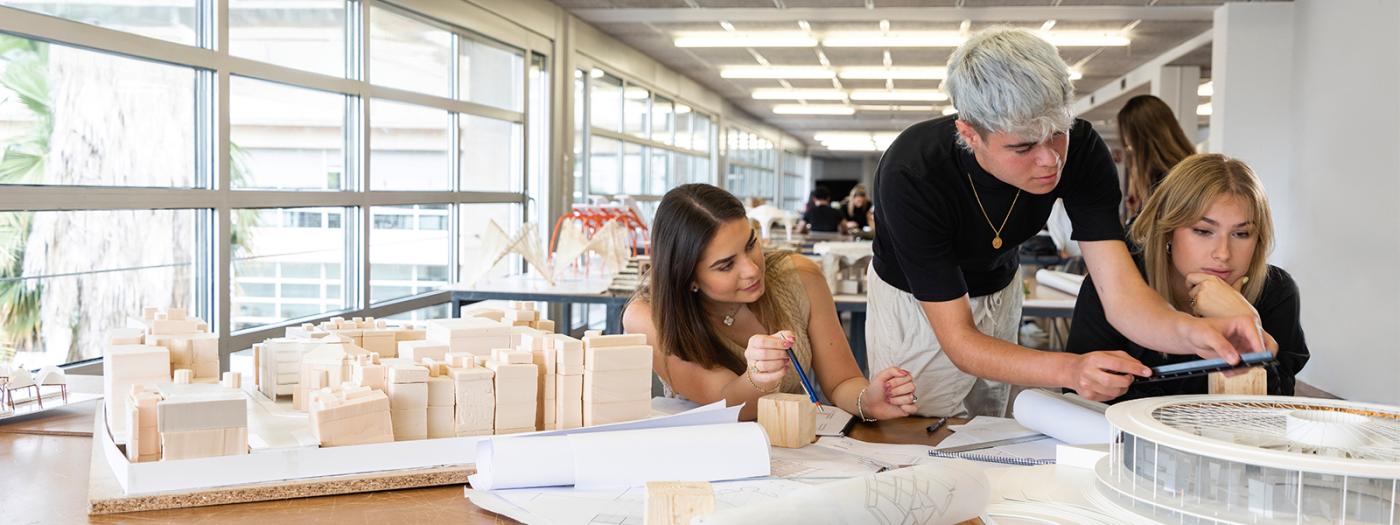The New Infrastructures subject is the first course where real challenges, real clients, and, therefore, projects that must be executed are presented to students.
Projects are proposed in various locations worldwide, often in developing areas.
Projects are commissioned by personal clients, associations, foundations, NGOs. In any case, the projects presented have a solidarity component.
The subject aims to contribute to understanding other cultures and societies, the process of a project, and the overall functioning of cooperation.
Students will learn the ability to modify a project based on elements external to the academic environment: the client, local technology, economic viability, or even politics.
Thematic blocks in which the contents of the subject are organized:
The subject is divided into two interrelated parts in terms of time and operation. There is a group of theoretical classes resulting from the research carried out by the professors throughout their professional lives, as well as expert guest speakers, and another group of classes that takes place in a project workshop that is corrected in class with the aim of drafting the executive project.
1. THEORETICAL CLASSES AND RESEARCH
1.1. Presentation of projects with their respective clients.
1.1.1 Involvement of real clients.
1.1.2 Objectives of the projects.
1.1.3 Experiences of NGOs, foundations, and African institutions.
1.2 Local culture (depending on the project location).
1.2.1 Ethnicity and nation.
1.2.2 Architecture.
1.2.3 Urbanism.
1.3 Theoretical explanation of the concept of culture and society.
1.4 Anthropological approach to architectural and urban space.
1.5 Examples of interventions in Africa.
1.6 International cooperation?
2. PRACTICAL CLASSES
2.1 How to attend to a client, what to ask, what they need.
2.2 Conflict between needs and the formal resolution of them.
2.3 Drafting a basic project with well-defined economic and material criteria.
2.4 Correction of the basic project with the client.
2.5 Drafting an executive project.
2.6 Drafting measurements and searching for the actual budget.
Problem-solving and exercise classes
Laboratory practices
Seminar
Self-Paced Learning
Project-Based Learning
Flipped Classroom
Gamification
Peer Instruction
Real-world events
Challenge-Based Learning
Case method
Lecture
Exams
Assignments
Internal/external reports
Exercises, problems, practices
Projects
Group/individual presentations
Self-assessment
Class participation/attendance
Project corrections: tutoring
`Arquitectura amb terra´. UPC publications
AITIM. `Casas de Madera´.
Martínez Carreras, José Urbano; Ndongo-Bidyogo Makina, Donato; Castro Antolín, Mariano. `España en Guinea: Construcción del desencuentro´. 1778-1968.
